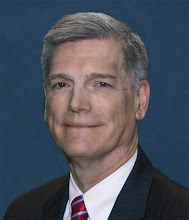I love The Simpsons. The Simpsons cleverly, mercilessly, and democratically gore everyone's sacred cows. None are off-limits, including the professionals who comprise the commercial nuclear power industry.
From the avaricious Montgomery Burns, owner of the Springfield Nuclear Plant, to the bumbling Homer Simpson, control room operator and safety inspector, the people of the nuclear enterprise are portrayed as incompetent and unconcerned about their responsibilities to serve and protect their fellow workers, the public and the environment. As you can imagine, the truth is quite different.
How different from that comedic portrayal are the real people of the nuclear power industry? A recent briefing by our NEI colleagues, Sue Perkins-Grew and Rod McCullum, reminded us how different indeed.
Sue and Rod recently attended an elite leadership training course offered by the Institute of Nuclear Power Operations' (INPO), the industry-supported agency for promoting excellence in all aspects of nuclear plant operations. They attended the Senior Nuclear Plant Manager (SNPM) course. This five-week curriculum is designed to give up-and-coming leaders a broader view of the nuclear industry. The course includes team building exercises that promote out-of-the-box thinking, briefings on the roles of key institutions and stakeholders in our industry, and visits to operating power plants to observe how other leaders and cultures achieve excellence in nuclear operations. Sue and Rod spoke enthusiastically about the quality of the training and insights gained through the SNPM course.
And what did they learn about their classmates from across the nuclear power industry?
In short, they were greatly impressed by the caliber of people in the course. They described them as showing the highest levels of integrity and professionalism, and the utmost commitment to safety. Sue and Rod expressed high confidence that our industry is in good hands, and will remain so when these prospective senior managers take the helm at their respective plants and companies.
Those of us in the nuclear power industry understand two things very well. One is that we share a commitment to safety at all levels and in everything we do. The other is that, by Hollywood's standards, this reality - a culture that puts nuclear safety ahead of everything else - doesn't make for a very entertaining cartoon. That's ok with us. We'll just keep on pursuing excellence and providing safe, reliable electricity to power the 21st century economy. And we'll leave the laughs to Homer and the gang.
 |
| What we are not. |
How different from that comedic portrayal are the real people of the nuclear power industry? A recent briefing by our NEI colleagues, Sue Perkins-Grew and Rod McCullum, reminded us how different indeed.
 |
| Sue Perkins-Grew in action on the ropes course at SNPM. |
And what did they learn about their classmates from across the nuclear power industry?
In short, they were greatly impressed by the caliber of people in the course. They described them as showing the highest levels of integrity and professionalism, and the utmost commitment to safety. Sue and Rod expressed high confidence that our industry is in good hands, and will remain so when these prospective senior managers take the helm at their respective plants and companies.
Those of us in the nuclear power industry understand two things very well. One is that we share a commitment to safety at all levels and in everything we do. The other is that, by Hollywood's standards, this reality - a culture that puts nuclear safety ahead of everything else - doesn't make for a very entertaining cartoon. That's ok with us. We'll just keep on pursuing excellence and providing safe, reliable electricity to power the 21st century economy. And we'll leave the laughs to Homer and the gang.

Comments
James Greenidge
Queens NY
Worker from the Trojan plant in Oregon worked out at my gym. The sounded for all the world like something out of Homer Simson, the "hehehe, voters can't shut down our plant, Oregon couldn't get by without the power". And just a few years later while repairs were going on, enough damage was seen in pipes (?) that it was not economical to repair the plant.
The multi-plant failure in Japan may be been the death knoll of nuclear power. I would like to see a recovery, but I do not expect it.